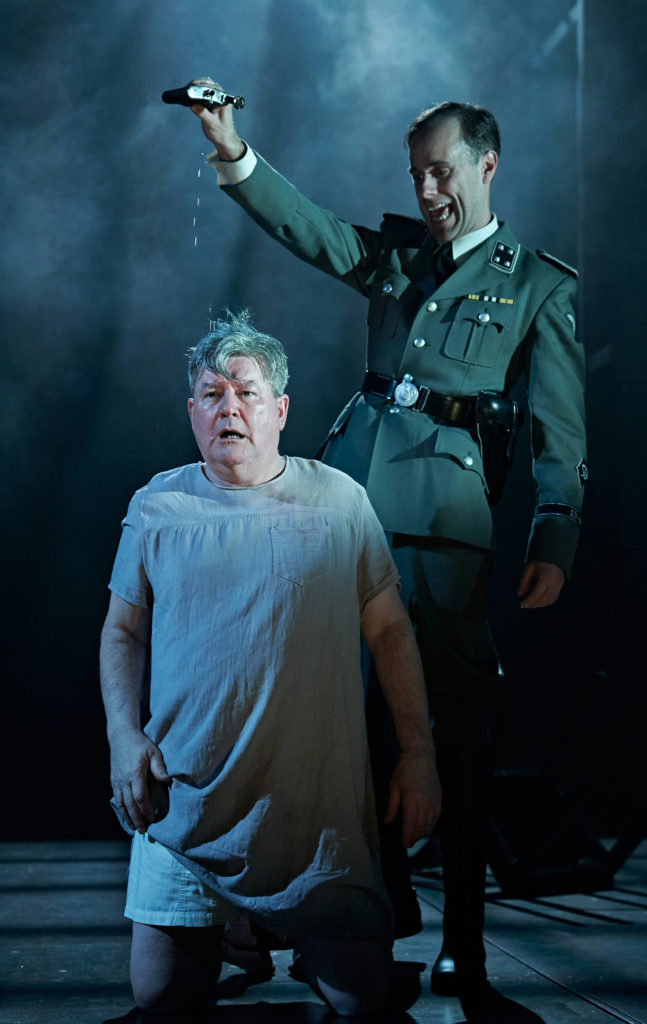
Review: Alone In Berlin, York Theatre Royal/Royal & Derngate Northampton, at York Theatre Royal, until March 21. Box office: 01904 623568 or at yorktheatreroyal.co.uk
IT is rare to have a perspective on the Second World War from within Germany itself, presented on stage or screen.
What’s more, Kander & Ebb’s Cabaret was a Broadway musical rooted in Anglo-American Christopher Isherwood’s semi-autobiographical 1945 novel The Berlin Stories, set in Weimar Republic Berlin in 1931 with the Nazi Party on the rise. There could be no more cynical voice than that of the nightclub Emcee; entertainment at any price.
This year, New Zealander Taika Waititi’s Jojo Rabbit, a satirical account of the last year of World War Two, as seen through the eyes of a ten-year-old Hitler Youth enthusiast in a German town, garlanded nominations aplenty in the Hollywood awards season but opprobrium in equal measure. How did it end? With the boy and a newly free Jewish girl dancing to David Bowie’s Heroes, sung in Deutsche.
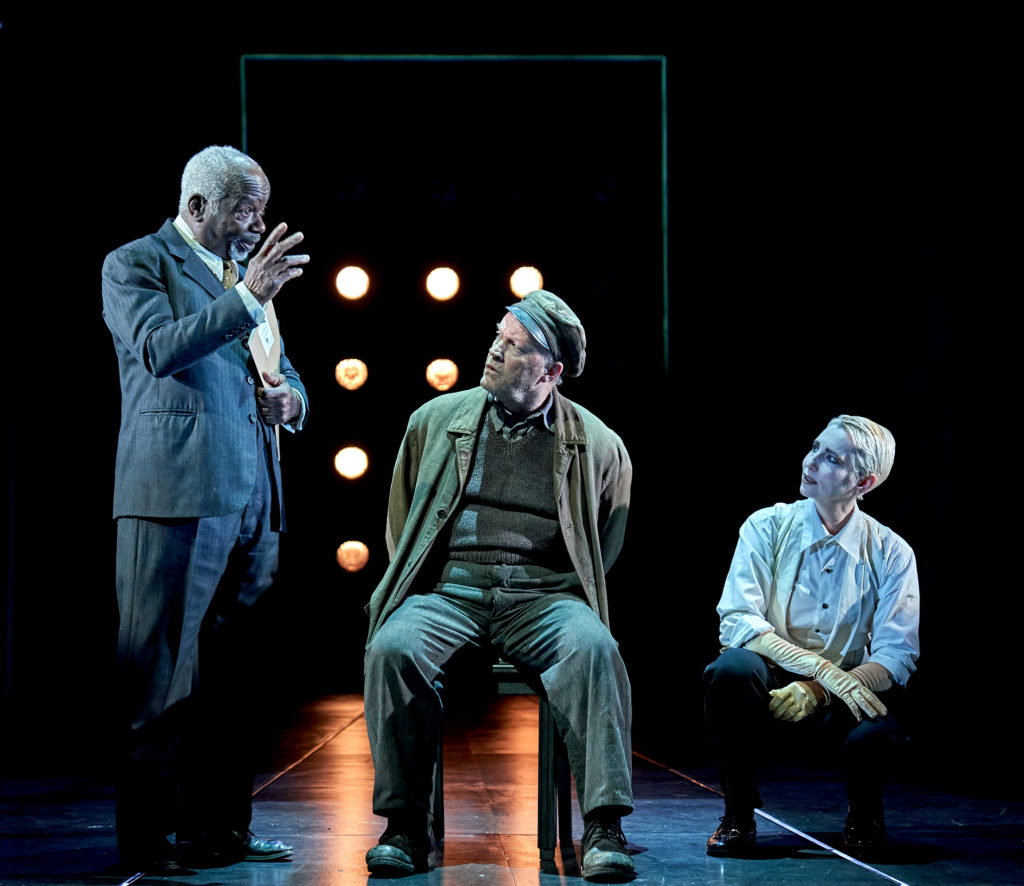
Alone In Berlin is a different beast altogether, still with songs (more of which later), but far removed from the powder and paint, mirage and murk of Weimar cabaret or a small-town boy’s loss of innocence. The source novel, based on a true story, was written by a German, the maverick Hans Fallada, responsible for Little Man, What Now? too.
Also known aptly as Every Man Dies Alone, it was published in 1947 – the year Fallada died of a morphine overdose – but not in English until 2009.
Since then, there has been Vincent Perez’s 2016 film with Brendan Gleeson and Emma Thompson and now this York Theatre Royal and Royal & Derngate Northampton co-production, translated and adapted by playwright and political satirist Alistair Beaton and directed by James Dacre, the Northampton theatre’s artistic director.
We watch it through the 2020 filter of grim, vulnerable times, in a year of floods, storms, immigration intolerance, Brexit’s cold shoulder, myopic political leaders, and now the creeping spread of Coronavirus. “This is war,” an exhausted Italian doctor said yesterday.
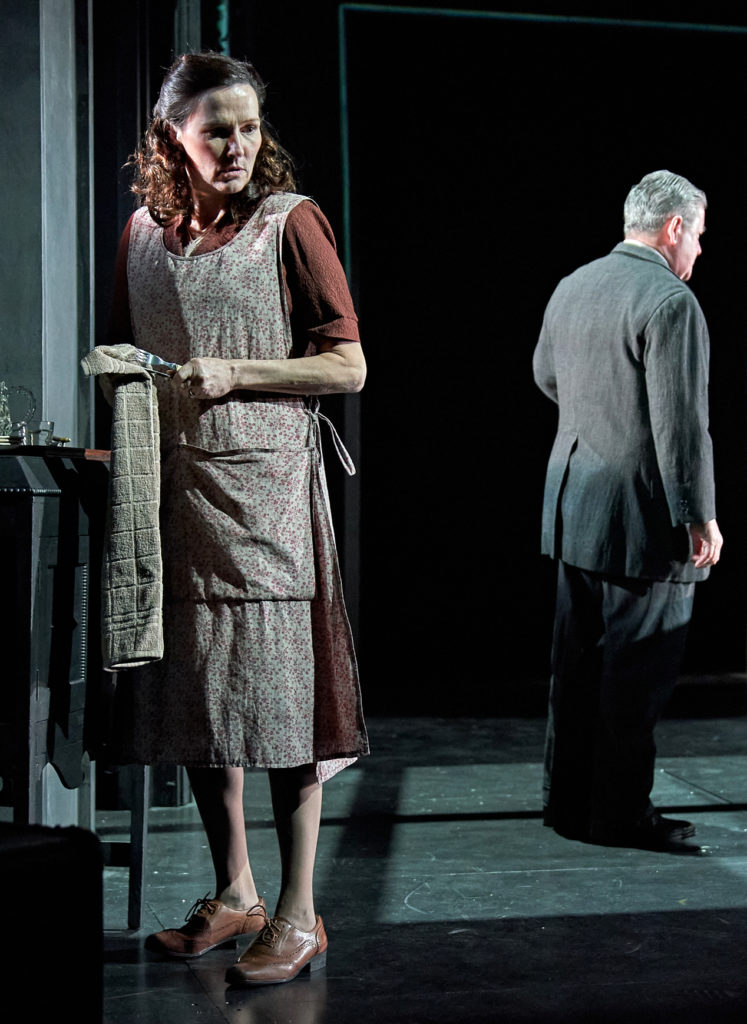
On the one hand, there is heightened awareness of the need for collective responsibility, but, on the other, a fear that other factors may over-power it, and where does that leave individual action as we wash our hands ever more feverishly? We are indeed, as everyone is in Fallada’s book, very much alone, and seemingly not in control of our destiny.
Such a feeling prevails in Alone In Berlin, where the central question is whether an individual can make a difference through courageous acts of protest when standing up against the drowning tide of Nazism.
Hard-working carpenter Otto Quangel (Denis Conway) and worn housewife spouse Anna (Charlotte Emmerson) have just learnt that their only son, Marcus, has died in action, honourably serving the fatherland, the letter says, but they see no honour in it. Nor does his fiancée Trudi (Abiola Ogunbiyi), who joins the Resistance movement, although the subsequent arc of her story shows how ultimately alone everyone is under duress.
Yes, they had voted for Hitler – more precisely Otto told Anna which way to vote, she says – with Hitler’s promise of jobs to end the Depression, but they had since grown disillusioned. Their boorish, bragging bully of a neighbour Borkhausen (Julius D’Silva), feels empowered to persecute the Jewish woman next door; he and petty criminal Benno Kluge (Clive Mendus) are exploiting the vulture opportunities of Nazism’s tyrannical grip.
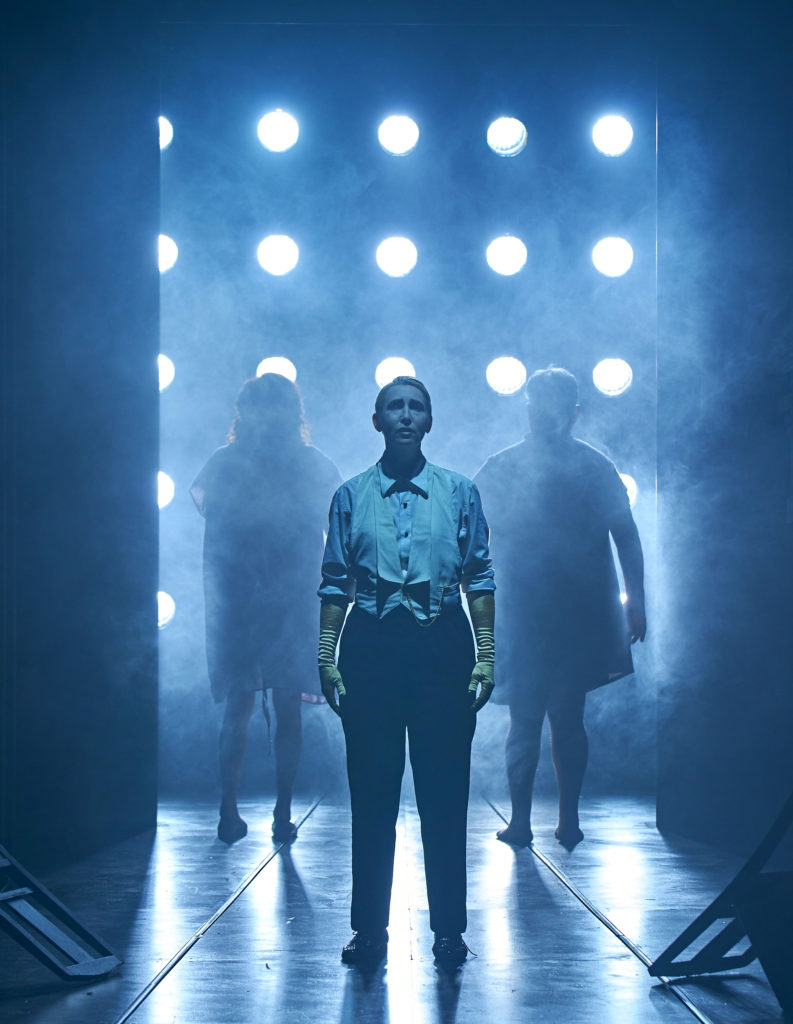
What would you do in such testing circumstances? Keep your head down? Keep making coffins as carpenter Otto now is? Or start a campaign of civil disobedience, as Otto decides he must, no matter how small the defiant act, prompting him and then Anna to write to write messages on postcards he stealthily distributes across Berlin, calling on fellow Germans to resist?
Most fall into the hands of the authorities, represented in Fallada’s suffocating story by Gestapo officer Inspector Escherich (Joseph Marcell), a veteran policeman, adapting to do what he must do to survive, and his superior, SS Officer Prall (Jay Taylor), ambitious, merciless, the embodiment of all the very worst Nazi stereotypes.
Once the trail leads to Otto – spoiler alert – the most telling scene has Otto confronting Escherich’s expediency. “You don’t believe in anything,” he scolds him. That shocks Escherich to the core, and in turn it challenges us too, to cling to our beliefs, to cling to hope for the better path, to defy, to resist, if necessary, and to go it alone as the starting point, but with conviction that others will follow.
Dacre’s meticulous, methodical production is one of very high production values, and devastating performances by Conway, Emmerson and Marcell in particular, but it is not wholly successful.
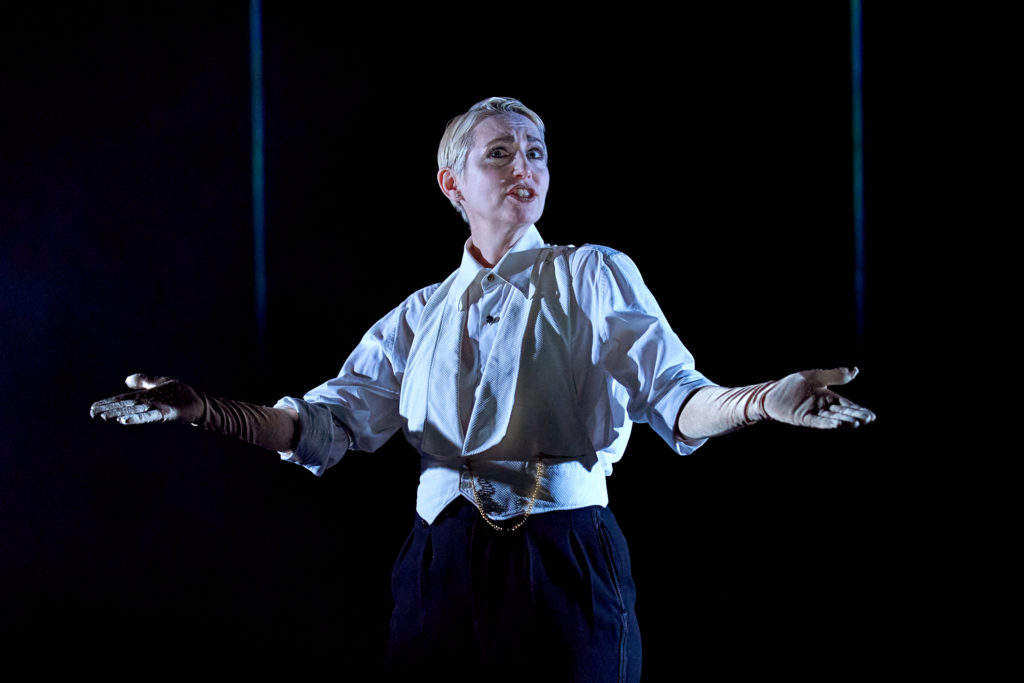
Beaton’s script sometimes sails close to the prosaic, and Jessica Walker’s omnipresent angelic statue Golden Elsie, matching the black and white of Jonathan Fensom’s stark set and Nina Dunn’s video designs, will be a divisive figure for audiences.
Essentially a one-woman Greek chorus, she is more reporter than commentator, and while she may echo Weimar cabaret in style, Orlando Gough has given her dissonant, flatlining operatic songs, always eluding a tune and relentless as toothache. This is probably deliberate, but the sheer number of songs is a drag on the play’s momentum.
Jason Lutes’s illustrations from his graphic novel Berlin are used brilliantly, Charles Balfour’s lighting is in turn dazzling, oppressively dark and intimidating; Donato Wharton’s sound design is exemplary.
Ultimately, Alone In Berlin, will have an impact beyond those fault lines in its telling. It will make you think, reflect, whether alone, or better still, together in the bar afterwards. Hopefully, too, it will make you want to make a difference, to push back against the crush, to be the first flutter of the butterfly’s wing.
Charles Hutchinson
